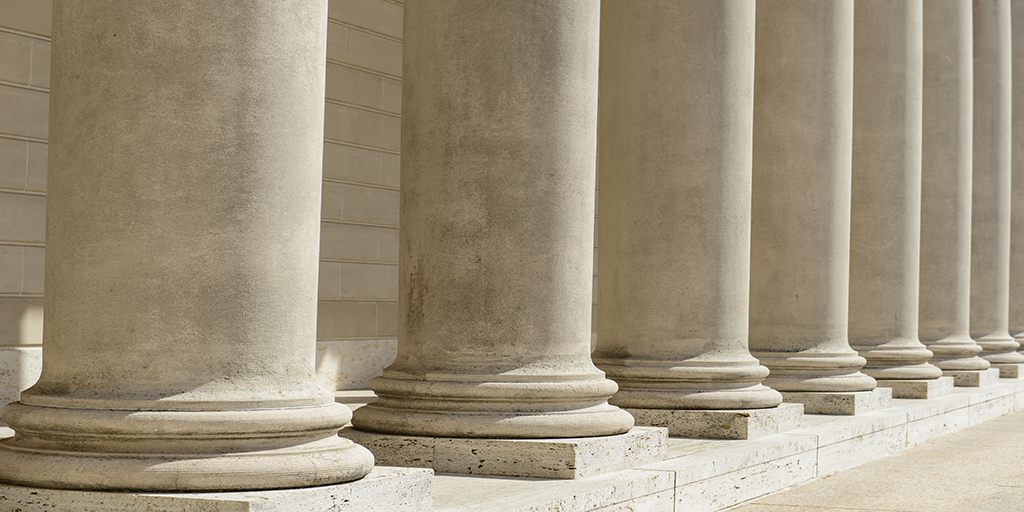As bankruptcy practitioners are aware, there was a time when the Bankruptcy and Insolvency Act (the “BIA”) did not afford the special status to government student loans as it does now. During that time, however, the case law developed to the point where the courts afforded them special status especially where the bankrupt was seeking a discharge where their only liability was for government student loans.
One such case was Burke (Re), 1992 CanLII 4573 (NS SC).
On the bankrupt’s application for discharge, Justice Saunders stated at paras 6-10 that:
While I accept Justice Wimmer’s comments that there is no specific provision in the bankruptcy legislation exempting Canada Student Loans, I take a different view of the manner in which such obligations are to be treated.
People borrow money with the expectation that they will be obliged to pay it back. Students are no different. The “asset” obtained with the loan – an education – will last a lifetime.
Canadian student loans are advanced by Canadian taxpayers to students who would otherwise be unable to finance a post-secondary education.
The responsibility rests with the student to honor that obligation after she or he has completed the education which the taxpayers’ benevolence has provided. The obligation is not postponed, or suspended, because of inconvenience or the fact that the other responsibilities have intervened, any more than such protest would excuse other categories of borrowers. While a sluggish economy and poor employment prospects may be mitigating circumstances they do not in any way constitute or promote a forgiveness of the debt.
I approve of the approach that such a loan and such an indebtedness ought to be considered as being of a high moral nature and should be ranked accordingly. There should continue to be an obligation upon the bankrupt to repay the Canada Student Loan. Mr. Burke is 28 years of age. He has a long life ahead of him, and potentially, considerable earning capacity, notwithstanding today’s present economic difficulties.
Ultimately, the court granted the bankrupt a conditional order of discharge requiring him to consent to judgment in favour of his trustee in the amount of their student loan to be paid at a rate of $70 per month.
A recent decision of the Supreme Court of Nova Scotia highlights the fact that this case is still good law and that the courts will apply it where a bankrupt seeks a discharge for government student loan debts that do not survive their discharge from bankruptcy pursuant to s.178(1)(g) of the BIA.
In Handspiker (Re), 2018 NSSC 333, the bankrupt made an assignment in bankruptcy in 2017. At the time of her filing for bankruptcy, her sole liabilities consisted of federal and student loans. Since the bankrupt had completed her studies in 2009, her student loans debts were not going to survive her discharge from bankruptcy pursuant to s.178 (1)(g) of the BIA.
The matter initially came before the court since the bankrupt had not fulfilled certain duties and because her assets did not amount to 50 cents on the dollar of her unsecured liabilities. The bankrupt subsequently fulfilled the duties she had not fulfilled and her trustee now sought the bankrupt’s absolute discharge.
In its decision, the court made reference to Burke and the changes that were made to the BIA subsequent thereto. Ultimately, the court held that despite the changes to the BIA, the public and social considerations in Burke was still good law which the court will apply in cases where the bankrupt has government student loans that do not survive the bankrupt’s discharge from bankruptcy. In those such cases, the court noted, at para 27, that it will take into account the following non-exhaustive factors in determining what award it ought to arrive at when considering the bankrupt’s application for discharge:
Is the student loan the sole, or major, debt to be discharged?
If not, what proportion is it of the total dischargeable debt?…if the bankruptcy appears to be for the sole or dominant purpose of clearing student loan(s), the “special consideration” status of the loan should be of its attention to the Court,
What, if any, effort has been placed on repayment, given the means and circumstances of over time, and from time to time, the debtor?
Has the payment but voluntary, involuntary or a combination?
What is the lifestyle of the bankrupt and could s/he have made other, additional, or better efforts to service the debt?
How much of the obligation consist of funds advanced to the bankrupt, and how much is accrued and unpaid interest?
How much was the original principal amount at issue?
Has there been any attempt to reamortize, refinance, or otherwise (such as interest relief) service the loan outside of regular payment terms?
What use, if any, has the bankrupt made of the education for which the loan was advanced?
What is known of the bankrupt’s prospects over the next reasonable period of time?…
Are there other obligations of public status, such as income or other tax liability, which evidence that the debtor considers the public purse to be his or her own?
What, if any, position or objection is being taken by the applicable creditor?
Does the debtor, individually or through her/his family unit, have or may reasonably expected to have “surplus income” within the meaning of the Superintendent’s guidelines?…
Are there extraordinary factors which the Court should be aware, such as individual or family illnesses or special needs?
What has been the overall approach of the bankrupt to the process and has there, in particular, been a neglect of duties or other facts under section 173 of the BIA?…
Is this the first or subsequent bankruptcy?
Ultimately, in Handspiker, the court, in granting an absolute order of discharge, noted the following:
- That the bankrupt made a respectable effort to service the debt;
- That a meaningful amount of the outstanding balance was accrued interest;
- That the bankrupt’s immediate financial prospects did not show an upward trend; and
- That the bankrupt did not treat the responsibility to repay with highhandedness nor did she live extravagantly.
The lesson: bankrupts should be aware that just because their government student loans will not survive their discharge from bankruptcy, this does not mean that they will not be ordered to contribute more money to their bankruptcy estate as a condition of obtaining their discharge. This is especially true where the sole reason they filed for bankruptcy is to be discharged from their student loans.
If you have further questions regarding bankruptcy or insolvency and want to discuss your legal options, please contact our Insolvency & Collections group at Merovitz Potechin LLP.
This article was originally published by The Lawyer’s Daily (www.thelawyersdaily.ca), part of LexisNexis Canada Inc.









